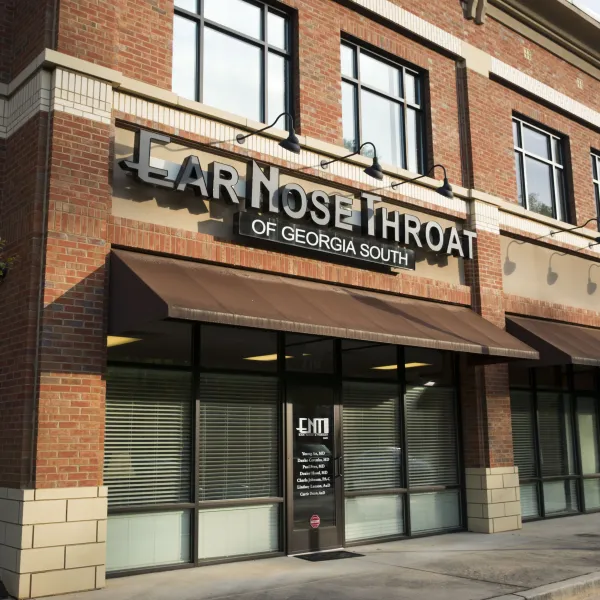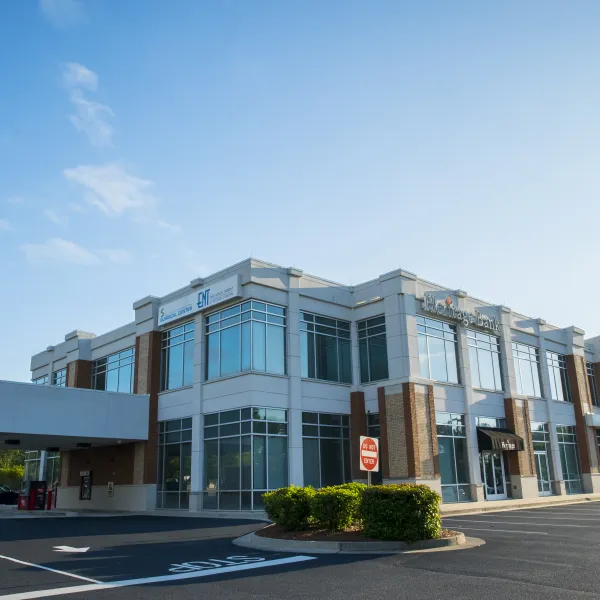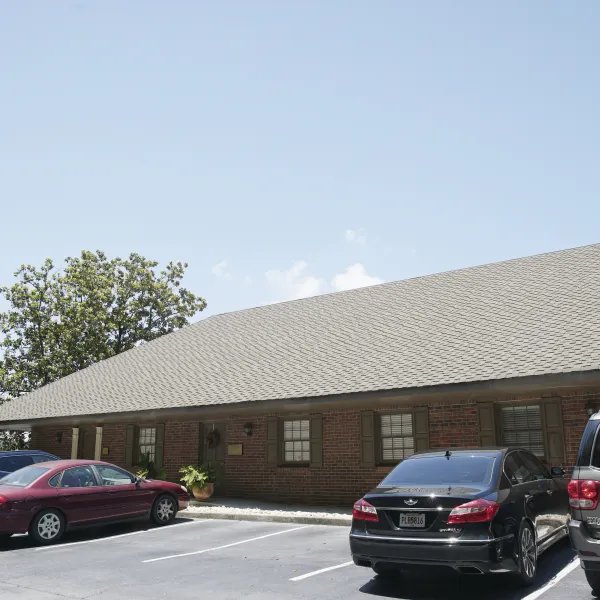
Turbinate Hypertrophy

ENT of Georgia South and
Turbinate Hypertrophy
Like nasal polyps, nasal turbinates are a common source of nasal obstruction that can block proper airflow. At ENT of Georgia South, we pride ourselves on patient satisfaction and dedicate ourselves to the treatment and relief of sinus and nasal conditions. If you suffer from turbinate hypertrophy, schedule an appointment today.
What are
Nasal Turbinates?
Nasal turbinates, also known as nasal concha, are important structures inside the nose that trap dirt, dust, and other particles so they cannot enter your lungs. There are three turbinates – the inferior, middle and superior – in each nostril. These spongy and bony curled structures add moisture and heat the air you breathe in, helping your lungs to operate more effectively. When these structures are irritated by allergies or other conditions, they can become inflamed and enlarged, resulting in a blocked nasal airway.
What is
Turbinate Hypertrophy?
Turbinate hypertrophy is a condition characterized by chronic swelling of the nasal turbinates. Because the turbinates are covered in mucosal membranes containing a large supply of blood vessels, they are very sensitive. Though it is normal for turbinates to swell and shrink, if they are chronically swollen, they can produce prolonged nasal congestion.
Patients who have a deviated septum often develop turbinate hypertrophy.
Turbinate hypertrophy can be caused by several factors, including:
-
Allergies
-
Chemical or physical irritants
-
Temperature changes
-
Other environmental irritants
-
Hormonal changes
What are the
Symptoms of Turbinate Hypertrophy?
Turbinate hypertrophy can cause:
- Persistent nasal congestion
- Recurring sinus infections (sinusitis)
- Difficulty breathing through the nose
- Snoring
- Nosebleeds
How is
Turbinate Hypertrophy Treated?
Turbinate hypertrophy treatments such as corticosteroid nasal sprays, allergy medications and avoidance of environmental irritants often reduce the swelling of turbinates and improve nasal breathing. When these methods aren’t effective at treating your symptoms, other options may be recommended to remedy the condition and its underlying causes. ENT of Georgia South offers a minimally-invasive treatment called radiofrequency turbinate reduction that shrinks the size of turbinates. If a deviated septum is the cause of obstruction, a septoplasty may be recommended.
Our Convenient
Office Locations



Buckhead
1218 W Paces Ferry Rd NW
UNIT 208
Atlanta, GA 30327
Monday - Thursday 8am - 4:30pm
Friday - 8am-2:30pm
